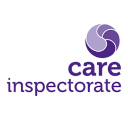Professional judgement

As a manager or staff member you will use professional judgment. You make decisions about the care you are delivering every day. However difficult decisions, in unprecedented circumstances may challenge your professional judgement and even your ability to make a non-biased safe and good decision.
Firstly, get the information you need to make the decision, secondly consider ‘what you don’t know’ and always ask if you have to make this decision alone. If you can, share the problem with a colleague or manager as they may have more experience and knowledge. Together you can review any risks and consider solutions. This will support your professional judgment and your decision.
However, if you do have to make the decision alone remember your professional codes of practice, these principles are there to guide and help you. Put safety first for those you care for, colleagues and yourself. Make sure you base any decision on good practice and evidence and consider the needs, wishes and preferences of those affected by your decision. Record how you made the decision based on these factors.
It’s a fact that at sometimes we may make a wrong decision particularly when it is complex with no simple right answer or when the outcomes were poor, despite your best efforts. What matters is that you considered everyone and all of the factors, asked for support if it was available, took the best decision and recorded it.
Good practice examples may include:
- Staffing contingency plans to address short notice absences. For example, the qualified nurse for night shift has called in sick and no agency staff are available.
- Staffing escalation process, who can you call, what autonomy do you have to make decisions.
- Undertaking self-evaluation. This can be useful if staff report increased levels of stress impacting on their physical, emotional, social wellbeing as well as their ability to deliver safe care.
- Quality assurance audits where for example the analysis of an increase in the level of falls suggests more staff may be required in the evening to improve observation and early intervention.
- A family member has advised the staff that they feel their relative has to wait too long for support. Inclusive and regular reviews of care can create an open forum where people receiving care and family members can raise concerns and agree solutions.
- An individual has diabetes and uses a Freestyle Libre, staff are not familiar with this and require training. Creating links with allied health professionals can provide access to specialist training.
- Having regard to local procedures for example local authorities and health and social care partnerships.